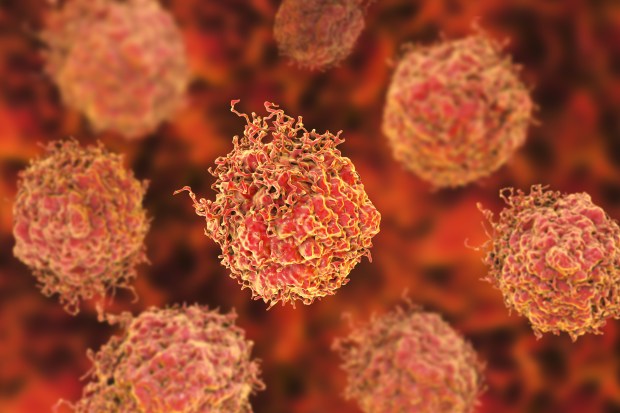FEARGAL Sharkey has revealed he was diagnosed with prostate cancer after a casual visit to his local GP for a sore throat.
The Undertones frontman, 66, has spoken out about his ordeal to raise awareness of the importance of regular cancer screenings.
He implored all men over 45 to go and get checked out for prostate cancer saying ,“If you’re lucky”, you’ll walk away.”
After his testicular cancer scare in 2023, he claims he is now doing “very well” and pledged to “carry on this fight” for clean waterways after his health issue was cleared up a year ago.
His rather stubborn GP insisted that he undergo “routine tests,” a decision which may have saved his life.
A keen angler, Feargal told the Express: “About a year and a half ago, I randomly went to see my GP with a sore throat.
“Now I’ve known him long enough but he goes, ‘No no, you’re that bloke that used to sing.
“So if you’re telling me you’ve got a sore throat, something is going on’.
“So my doctor, being the beautiful, wonderful, awkward, cantankerous old man that is gone, ‘Oh Feargal, by the way, you’re 65 now, I’m going to run the full battery of tests’.”
That wondrously awkward old physician’s insistence on checking out the singer resulted in him being diagnosed with prostate cancer.
But “without that random visit” to his local GP, Feargal would have never known that he had cancer, and warned “it could have been a very different ending and a very different outcome to my life.”
The campaigner has slammed water companies, blaming their “greed, profiteering, financial engineering and regulatory incompetence.”
He has denounced companies such as United Utilities, which deals with wastewater across the Northwest of England.
Storm overflows at two water treatment plants dumped raw untreated sewage at Cunsey Beck and Hawkshead Pumping Station, both flowing into England’s largest Lake Windermere.
The company claimed the spill was due to record rainfall last August but mounting evidence indicates spills are happening regularly.
Campaigners claim the spills are due to a lack of infrastructure investment.
Feargal said: “Sewage dumping has nothing whatsoever to do with heavy rain.
In an interview on BBC Radio 4 Today he was asked if banning bonuses for water bosses and criminal liability for spills would go far enough in the new water bill.
He said: ‘Whitehall has no monopoly in any of this by any means. Welsh Water, for example, is actually the largest sewage dumper in the United Kingdom. Scotland has any number of rivers in bad ecological condition.
‘Lough Neagh in Northern Ireland has been poisoned to the extent that it too now turns green, like Windermere.’
Telltale signs of prostate cancer
Some symptoms may start to emerge when the cancer growth is big enough to put pressure on the urethra – the tube that allows urine to pas out of the body.
These can include:
- Needing to urinate more often, especially at night
- Needing to rush to the toilet
- Difficulty in starting to pee
- Weak flow
- Straining and taking a long time while peeing
- Feeling that your bladder hasn’t emptied full
If the disease has spread to other parts of the body – which is when it’s known as advanced or metastatic prostate cancer – it can cause several other symptoms, including:
Many men’s prostates get bigger as they age because of two non-cancerous conditions: prostate enlargement and benign prostatic hyperplasia.
These conditions are more common than prostate cancer – but that doesn’t mean symptoms should be ignored, charities warn.
What causes prostate cancer?
Prostate cancer is very common but its causes remain a mystery.
As with most cancers, the older you get, the more you are at risk, and its most common in men in their older 70s.
Ethnicity plays a role and it is more common in Black men than white men, and least common in Asian men.
There is a genetic element, and your odds are worse if you have a male relative whose had the disease.
Being overweight increases your risk of getting the disease, and exercise lowers it.
A very high calcium diet rich in dairy is thought to increase the chances of getting sick so you might have to lay off the cheese.
Eating foods that contain lycopene is thought to reduce the risk of prostate cancer developing, according to Cancer Research UK.
This includes tomatoes and tomato-based foods, particularly when cooked.
How is prostate cancer treated?
Assuming prostate cancer is caught in its early stages, treatment is not always immediately necessary.
In these cases, doctors have a policy of “watchful waiting” or “active surveillance”, where treatment is delayed until it’s needed.
Later treatment can then include surgically removing the prostate, radiotherapy, and hormone therapy.
There are more experimental options becoming available though. One man was cured of the disease after being given testosterone in a trial designed to shock tumours to death.
Nearly all treatments include unpalatable side effects such as erectile dysfunction and urinary incontinence.
One in eight men will get prostate cancer

THE risk of developing prostate cancer depends on many factors.
Here are some of the facts about the disease and how many men it affects…
- One in eight men will get prostate cancer in their lifetime
- It is the fourth most common cancer worldwide, and the second most common in men
- There are 55,000 new cases every year in the UK, and 1.4million globally
- Around 12,000 people lose their lives to prostate cancer annually in the UK and almost 400,000 around the world
- Prostate cancer accounts for 28 per cent of all new cancer cases in men in the UK, and 14 per cent of all new cancer cases in men and women combined
- Prostate cancer survival has tripled in the last 50 years in the UK
- More than three-quarters (78 per cent) of patients survive for 10 or more years
- About 490,000 men are living with and after prostate cancer in the UK
- It is most common in men aged 75 to 79
- Since the early 1990s, cases have increased by 53 per cent in the UK
- Mortality rates are up 16 per cent since the early 1970s in the UK
- Incidence rates are projected to rise by 15 per cent in the UK between 2023 to 2025 and 2038 to 2040
- Mortality rates are expected to fall five per cent in the UK over the same years
















